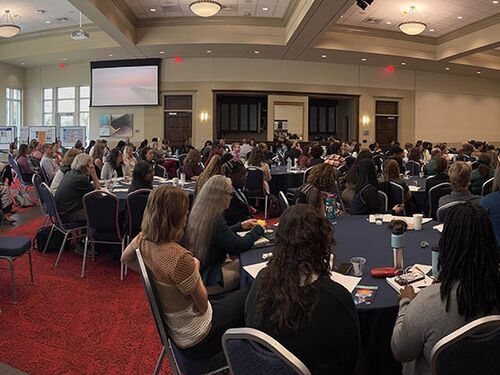Gulf Research Program Welcomes Six Universities to Interdisciplinary Gulf Scholars Program
News Release
By Pete Nelson
Last update October 29, 2025
WASHINGTON — The Gulf Research Program (GRP) of the National Academies of Sciences, Engineering, and Medicine announced today the addition of six colleges and universities to the Gulf Scholars Program, a five-year, $12.7 million pilot program that prepares undergraduate students to address pressing environmental, health, energy, and infrastructure challenges in the Gulf Coast region. The 2025 cohort of institutions to join the program is Alcorn State University, Louisiana Tech University, Millsaps College, Texas Southern University, University of Mississippi, and University of South Florida.
This fifth cohort expands the Gulf Scholars Program network to span 30 institutions across the Gulf States — Texas, Louisiana, Mississippi, Alabama, and Florida — and marks the final cohort of the pilot phase of the program. The completion of the pilot phase sets the stage for broader implementation of similar programs at other colleges and universities in the region, resulting in an extensive network of higher education partners working toward a more resilient and sustainable Gulf region.
“The Gulf Scholars Program recognizes that addressing the Gulf’s complex challenges requires creativity and collaboration across every field of study,” said Karena Mothershed, program director for GRP’s Board on Gulf Education and Engagement. “By bridging classroom learning with real-world challenges, these exceptional institutions are helping to prepare a new generation of leaders who can integrate science, engineering, and the humanities to strengthen community health, resilience, and sustainability in the Gulf region.”
As a participant in the Gulf Scholars Program, each institution will develop a unique educational curriculum consisting of place-based courses, workshops, and a major research or creative project in partnership with a local or regional organization. These place-based studies and activities support students as they build the skills and knowledge critical to addressing the region’s complex environmental, energy, and resilience challenges.
The National Academies’ Gulf Research Program is an independent, science-based program founded in 2013 as part of legal settlements with the companies involved in the 2010 Deepwater Horizon disaster. The GRP’s mission is to develop, translate, and apply science to enhance the safety of offshore energy, the environment, and the well-being of the people of the Gulf region for generations to come. It supports innovative science, guides data design and monitoring, and builds and sustains networks to generate long-term benefits for the Gulf region and the nation.
The National Academies of Sciences, Engineering, and Medicine are private, nonprofit institutions that provide independent, objective analysis and advice to the nation to solve complex problems and inform public policy decisions related to science, engineering, and medicine. The National Academies operate under an 1863 congressional charter to the National Academy of Sciences, signed by President Lincoln.
Contact:
Pete Nelson, Director of Public Engagement and Communications
Gulf Research Program
email PNelson@nas.edu
More like this
Events
Right Now & Next Up
Stay in the loop with can’t-miss sessions, live events, and activities happening over the next two days.
NAS Building Guided Tours Available!
Participate in a one-hour guided tour of the historic National Academy of Sciences building, highlighting its distinctive architecture, renowned artwork, and the intersection of art, science, and culture.



